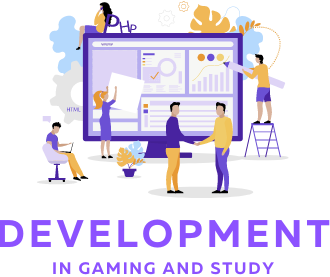In the realm of entertainment, few mediums have captivated audiences and pushed the boundaries of creativity quite like games. From the early days of Pong to the immersive worlds of today’s virtual reality experiences, games have evolved into a multifaceted form of expression that encompasses art, technology, and culture. In this article, we’ll delve into the power and potential of games, exploring their impact on society, their role in education, and their future possibilities.
Evolution of Gaming: From Pixels to Photorealism
The journey of gaming from its humble nexus slo beginnings to its current state is nothing short of remarkable. In the 1970s, the arcade era introduced the world to simple yet addictive games like Space Invaders and Pac-Man, laying the foundation for an industry that would soon explode in popularity. The advent of home consoles in the 1980s, spearheaded by the likes of the Atari 2600 and the Nintendo Entertainment System, brought gaming into the living rooms of millions around the globe.
As technology advanced, so too did the capabilities of games. The 1990s saw the rise of 3D graphics with titles like Doom and Super Mario 64, revolutionizing the way players interacted with virtual worlds. Fast forward to the present day, and games have reached unprecedented levels of realism and immersion thanks to advancements in hardware and software. From cinematic storytelling in games like The Last of Us to the breathtaking open worlds of titles like Red Dead Redemption 2, the possibilities seem endless.
Impact on Society: Building Communities and Fostering Connections
One of the most remarkable aspects of gaming is its ability to bring people together. Whether it’s through cooperative gameplay, competitive matches, or online communities, games have the power to forge bonds and create shared experiences. Online multiplayer games like Fortnite and League of Legends have become global phenomena, attracting millions of players and spawning vibrant communities.
Furthermore, games have proven to be a powerful tool for social change and activism. Games like That Dragon, Cancer and Papers, Please tackle complex themes such as illness and immigration, sparking important conversations and fostering empathy among players. Additionally, the rise of indie games has given voice to diverse perspectives and experiences, challenging traditional norms and broadening the scope of gaming as an art form.
Education and Learning: Gamifying the Classroom
Beyond entertainment, games have also found a place in education, with educators increasingly recognizing their potential as teaching tools. “Edutainment” titles like Math Blaster and Oregon Trail have long been used to supplement traditional learning methods, engaging students and making subjects more accessible. Today, gamification principles are being applied across a wide range of disciplines, from language learning to STEM education.
Games encourage critical thinking, problem-solving, and collaboration, skills that are essential for success in the 21st century. Through interactive simulations and immersive experiences, students can explore complex concepts in a way that is engaging and memorable. Virtual reality, in particular, holds promise as a transformative tool for education, allowing students to step into historical events, explore scientific phenomena, and interact with abstract concepts in ways that were previously impossible.
The Future of Gaming: Where Do We Go From Here?
As technology continues to advance, the future of gaming looks brighter than ever. Emerging technologies such as augmented reality, cloud gaming, and artificial intelligence promise to further blur the lines between the virtual and the real, opening up new possibilities for storytelling, gameplay, and social interaction. Virtual reality, in particular, holds the potential to revolutionize not just gaming, but entire industries, from healthcare to architecture.
However, with great power comes great responsibility. As games become more immersive and pervasive, questions of ethics, diversity, and inclusivity become increasingly important. Developers must grapple with issues such as representation, player safety, and the addictive nature of certain gameplay mechanics. By fostering an inclusive and responsible gaming culture, we can ensure that games continue to be a force for good in the world, enriching lives and inspiring creativity for generations to come.
In conclusion, games are more than just a form of entertainment – they are a reflection of our collective imagination and ingenuity. From their humble beginnings to their current state of sophistication, games have evolved into a powerful medium with the potential to educate, inspire, and unite people from all walks of life. As we look to the future, let us embrace the limitless possibilities of gaming and harness its power to shape a brighter tomorrow.
